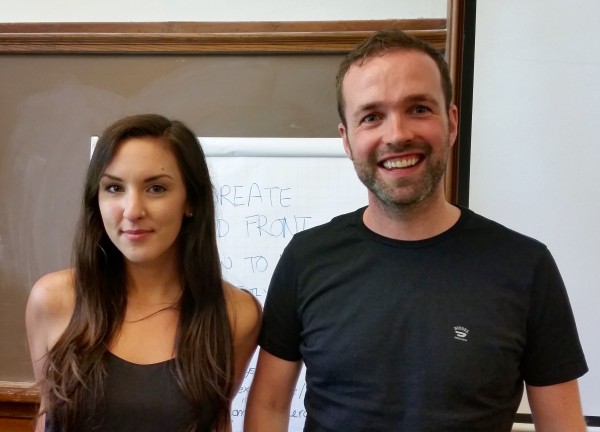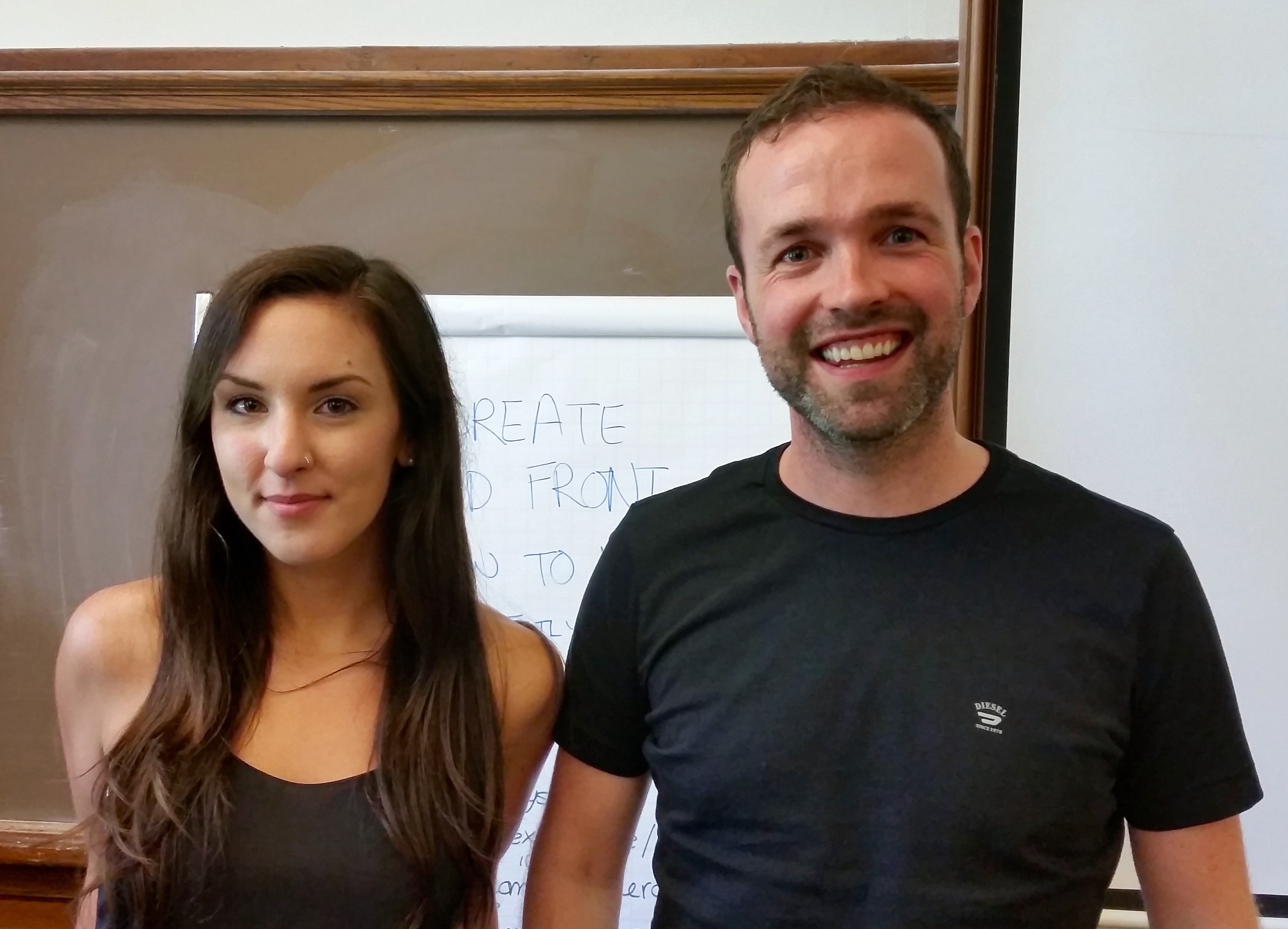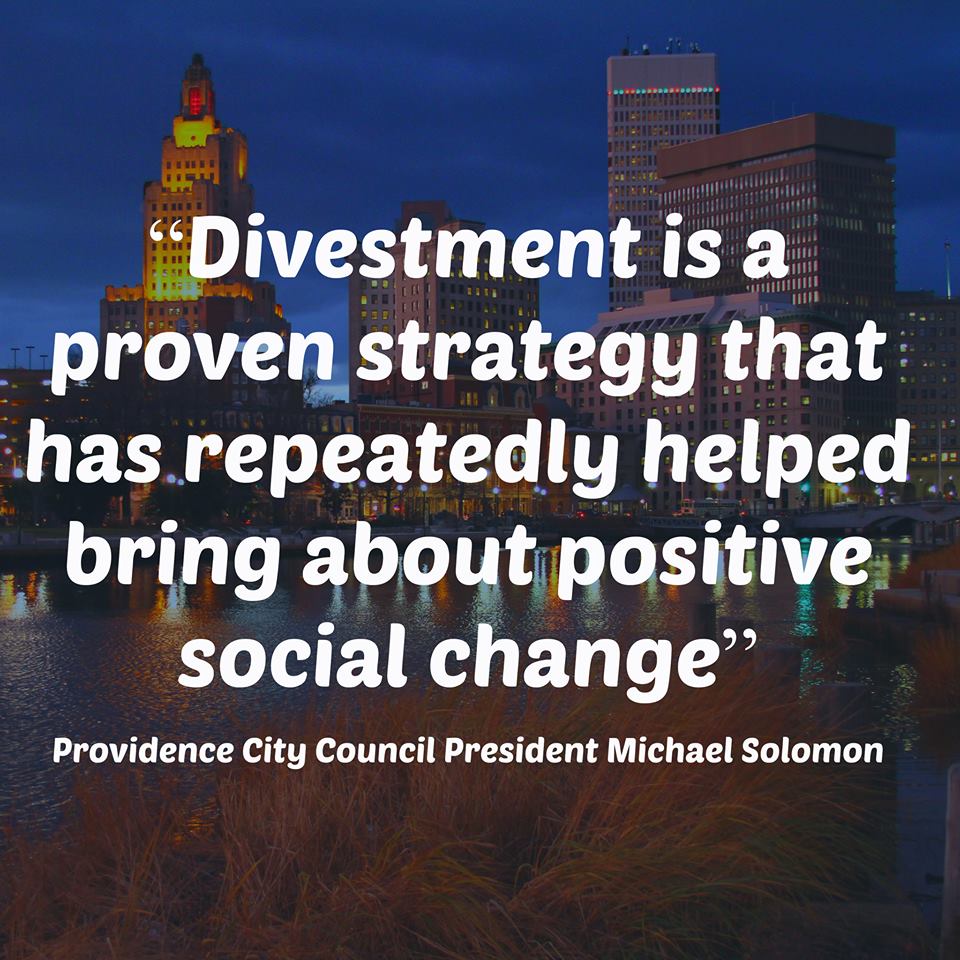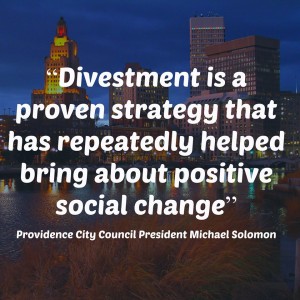
The Divestment Movement,” says Dr. Noel Healy, of Salem State University, “is a very important, very powerful movement.”
Healy and Jessica Debski, a student at Salem State, were presenting a workshop on the divestment movement at the Center for Popular Economics’ 2015 Summer Institute in Northhampton MA. Divestment is simply removing investment funds from fossil fuel companies. Healy and Debski’s research was about student movements working to pressure their colleges or universities into divesting, but divestment has broader applications and aims.
The point of divestment isn’t to somehow starve the fossil fuel companies of the funds they need to survive, but to make a moral point about the immorality of participating in and profiting from a practice that is literally killing the world. Divestment stigmatizes the fossil fuel industry, said Healy, and changes the public discourse on collective energy. Governments are pressured to enact meaningful legislation against fossil fuels even as fossil fuel companies are pressured to “undergo transformative change.”
Divestment campaigns also help to raise awareness of the “systemic risk of fossil fuel stranded assets,” that is, the fossil fuels owned by companies that need to stay in the ground if we ever hope to avert climate catastrophe. It also raises awareness about the “disproportionate impacts of climate change on developing nations, economically disadvantaged communities, and future generations,” said Healy.
In the course of their research, Healy and Debski identified nine of the most common arguments institutions use against calls for divestment. One by one these excuses were projected on a screen and one by one Healy took these excuses apart.
In light of Governor Gina Raimondo’s recent decision to back, rather than oppose, a new fracked gas energy plant in Burrillville, I think it’s worth examining these arguments in detail.
1. We all use fossil fuels – so divestment is hypocritical.
“To say this implies that we have a direct choice in energy sources,” says Healy, but how can that be the case when the entire system is rigged towards fossil fuels? Healy’s words immediately resonated with me. For instance, what kind of public input was sought before making the decision to build a fracked gas plant in Burrillville?
2. Divestment is pointless – it cannot bankrupt the coal, oil and gas companies.
I touched on this argument in my opening above, but to reiterate, bankrupting the companies financially is not the point. The point is to call out the companies on their moral bankruptcy. Don’t forget the power of previous divestment movements, such as those targeting tobacco and South African Apartheid.
3. Divestment is not meaningful, its just gesture politics
This argument ignores the power of symbolism and the power of taking a strong moral stand. All movements start with such gestures. Divestment is a proven strategy. Think again about tobacco and Apartheid.
4. Shareholder engagement with fossil fuel companies is the best way to drive change
The idea here is that if institutions were to keep some stock in fossil fuel companies they would be able to agitate for positive change from within the system. The problem, maintains Healy, is that there is “no evidence to support this.”
“There is no fixable flaw in fossil fuel industry business plan,” says Healy, “We are asking a company to go out of business.”
5. Fossil fuels are essential to ending world poverty
Remember that these are real arguments, made by real institutions. “Developing countries demand energy,” points out Healy, “not coal.” If given a choice about how that energy is to be generated, nearly everyone prefers renewables. Climate change, caused by fossil fuels, will impact frontline communities and impoverished peoples disproportionately. Rather than essential to ending world poverty fossil fuels are a threat to the world’s poor.
6. Most fossil fuels are owned by state controlled companies, not publicly traded companies targeted by divestment
This is true. But the strategy around divestment is to stigmatize fossil fuels and to force government regulation and a change in energy policy. Also, it is worth noting that the rights to most of the carbon that needs to stay in the ground if we ever hope to avoid cataclysmic climate change has been bought up by private companies.
7. There currently is no alternative to fossil fuel use
“Politics, not technology is the biggest hurdle,” maintains Healy. Our government subsidizes fossil fuels. The IMF says that “G20 countries subsidize fossil fuel companies $1,000 per citizen.” There are alternatives, if we demand them.
8. Primary role of universities is to conduct research, inform public policy and educate
And the primary point of investments is to make money. But at what cost? Taking a moral stand on the apocalypse, goes this thinking, is not within the purview of financial investments. Healy points out that institutions of higher learning that take this attitude are undermining their commitment to science and truth. They are immorally putting future generations at risk, the same generations these institutions are committed to educating.
9. The Fossil Fuel sectors are major investors in alternative energy
In truth, fossil fuel companies, as an industry, invest less than 1 percent of their funds into alternative energy. It simply isn’t true that they are “major investers.” Remember also that we subsidize fossil fuels in ways we do not subsidize renewables.
Healy and Debski made a strong, compelling case for divestment from fossil fuels.
Rhode Island, in welcoming this new fracked gas plant in Burrillville, is planning to invest in moral obsolescence.
You can watch Dr. Noel Healy take apart the arguments against divestment here:
Jessica Debski outlines the history of the divestment movement and outlines some of their research here:




